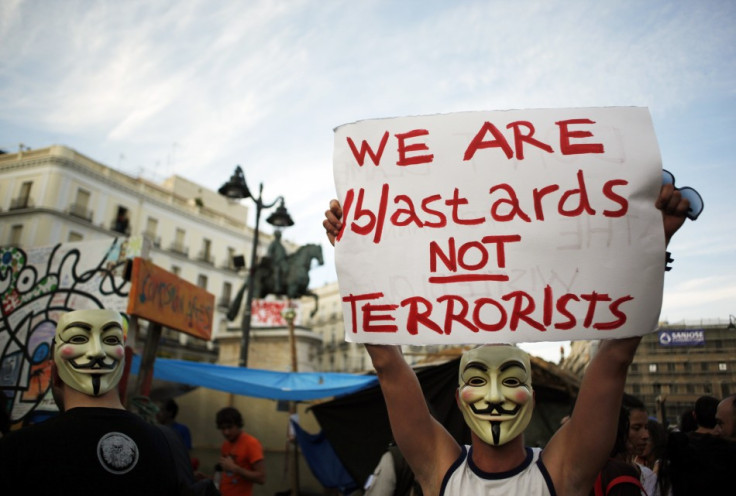AntiSec: Could a united global response to cybercrime deal with hacker collective Anonymous?

With the U.K. this week, joining the growing cacophony of countries calling for a unified global anti-cybercrime agency, analysts have already begun to question whether such a response could actually deal with hacking collectives like Anonymous.
The new laws suggested by the U.K.
The U.K's call for a united response to cybercrime came earlier this week at the launch of the newly founded International Cyber Security Protection Alliance (ICSPA). The call-to-arms came with an acknowledgement of the growing threat groups like Anonymous and its AntiSec hacking campaign pose.
Home Office Minister of Crime and Security James Brokenshire made the statement to reporters, that the country would be looking to pool resources with other governments and companies in order to combat "scammers, fraudsters and hackers."
"Active international partnerships are central to tackling cyber-crime," commented Brokenshire.
"There needs to be an international response including international treaties, bilateral treaties and common agreements between countries."
In line with what most analysts have been saying, the officials cited the lack of a unified global legal system as the key problem.
The ICSPA initiative has already stated its intention to work alongside European police agency EUROPOL.
The ICSPA is set to seek funding from the European Union, United States,Canada, Australia, New Zealand and Britain. It will also be seeking funding from as yet unnamed private companies, though McAfee, Cassidian, Trend Micro, Yodel, Core Security Technologies, Visa Europe, Shop Direct group, A&REdelman, Transactis and Article10 have all already voiced support.
In keeping with U.S. sentiment
After a number of its agencies and departments suffered cyber attacks from the now disbanded LulzSec group, the U.S. has on numerous occasions mirrored the U.K.'s recent sentiment.
According to a report from Reuters early last month the Obama administration had issued a request urging Congress to pass new laws that would double the maximum sentence hackers could receive.
The new laws would mean that any hacker or group caught accessing the U.S. Government's networks could potentially face up to 20 years in prison.
Anonymous
Little is known for sure about the origins of Anonymous, though the loose-knit hacker collective is believed to have originated from the larger and older 4Chan group.
Since it began operating, the group has described itself as "hacktivist", indicating that it only targets groups or individuals it deems as "harming" the general public. The group recently helped found the ongoing Operation Anti-Security -- commonly shortened to AntiSec.
In its opening statement Anonymous' now disbanded allies LulzSec described AntiSec as an "immediate and unremitting war on the freedom-snatching moderators of 2011."
Since AntiSec began Anonymous has claimed responsibility for a number of attacks on Turkish, Spanish, Italian, British and American government owned websites.
Could it work?
To date the Turkish, Spanish, British and, most recently, Italian authorities reported the arrest of alleged Anonymous members.
In its most recent reports, the Italian authorities went so far as to claim that it had managed to completely "dismantle" the Italian branch of Anonymous -- a claim Anonymous has since denied.
The trouble with such claims is that as a group, Anonymous lives up to its name-sake, no-one really knows how many members the group has, nor how organised they are.
The group even has a policy that states individuals can only remain members as long as their identities remain unknown -- presumably meaning that none of the individuals arrested are currently members of the group.
For police and security forces this makes actually dismantling or targeting Anonymous as a whole a nigh-on impossible task. Even arrested individuals who have taken part in Anonymous related hacks or cyber attacks will most likely know little to nothing about the group's other members or overall structure.
For this reason many have already come to question whether even with a united global response and the founding of an international cybercrimes agency, it would be possible to stop a group like
Anonymous once and for all.
In this sense, if truly "legion" in number, Anonymous could be seen as akin to a computer virus on a peer to peer network.
Peer to peer networks function by distributing the network's application architecture that partitions tasks or workloads between multiple peers -- computers. This means that unless the network as a whole is shutdown, the virus will continue to function unfazed.
Like the virus, if Anonymous truly are the fragmented "legion" it claims to be, even if the world unites and all members are arrested all at once, the collective would continue to function.
© Copyright IBTimes 2024. All rights reserved.






